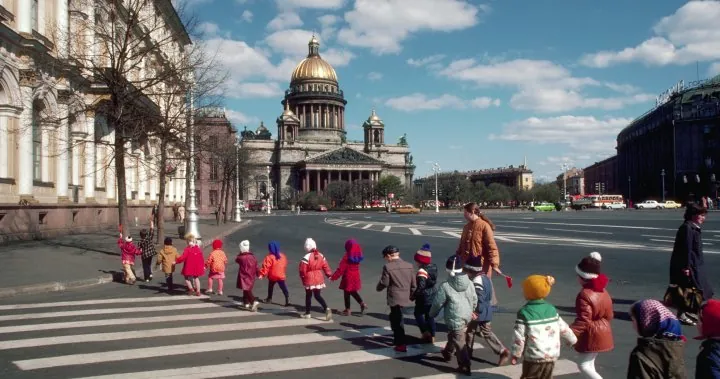
Russia's Bold Move to Increase Birth Rates: College Students Paid to Become Mothers!
2024-12-11
Author: Sophie
Introduction
In a surprising twist to address its plummeting birth rates, Russia is gearing up to implement a cash incentive program aimed at young women. Starting January 1, 2025, at least 11 regions across the country will offer a cash reward of 100,000 rubles (approximately C$1,300) to women who give birth. However, there are some strict requirements that participants must meet.
Target Demographic and Requirements
As reported by the Moscow Times, this initiative targets full-time female students at local colleges and universities, necessitating that they are under the age of 25 when they deliver their babies. One major stipulation is that the bonus will not be granted if the pregnancy does not result in a live birth. Tragically, if the child is stillborn, the mother would be disqualified from receiving the payment.
Urgency Driven by Demographic Trends
The urgency of this initiative stems from alarming statistics released in September, which revealed that Russia's birth rate has fallen to its lowest point in 25 years. Concurrently, death rates are climbing as the nation grapples with the ramifications of ongoing military conflicts, particularly the war in Ukraine, and a significant exit of citizens seeking stability abroad. President Vladimir Putin has referred to these demographic trends as “catastrophic” for the nation’s future, advocating for families to embrace the concept of having three children as a societal norm.
Government Measures and Family Values
In tandem with financial incentives, Russia's government has introduced measures to suppress what they term 'dangerous propaganda' regarding a child-free lifestyle, which they believe contributes to the declining birth rate. The government is actively pushing for traditional family values, and those promoting non-traditional lifestyles, such as same-sex relationships or dissent against the government, could face severe penalties for violating new laws.
Exploring Unconventional Initiatives
Additionally, Russian lawmakers are exploring other unconventional ways to boost childbirth rates. Among these initiatives is the proposal for utilizing public funds to cover honeymoon hotel stays for newlyweds in hopes of prompting conception. There's even been a rather audacious suggestion from a regional health minister that women should take advantage of work breaks to engage in procreation, with TV appearances emphasizing the importance of prioritizing family over career.
Global Context of Declining Birth Rates
The urgency in Russia's demographic strategy echoes a broader, global trend. Countries like Canada are also facing record low fertility rates—reported at 1.26 children per woman in 2023, the lowest since tracking began. As nations worldwide grapple with falling birth rates, Russia's extreme, and at times controversial, measures to encourage childbirth raise questions about the lengths governments will go to secure the future of their populations.
Conclusion
As the world watches, will Russia's bold tactics succeed in reversing its demographic decline? Only time will tell, but one thing is certain: they are unflinchingly embracing unconventional strategies to promote family growth.









 Brasil (PT)
Brasil (PT)
 Canada (EN)
Canada (EN)
 Chile (ES)
Chile (ES)
 España (ES)
España (ES)
 France (FR)
France (FR)
 Hong Kong (EN)
Hong Kong (EN)
 Italia (IT)
Italia (IT)
 日本 (JA)
日本 (JA)
 Magyarország (HU)
Magyarország (HU)
 Norge (NO)
Norge (NO)
 Polska (PL)
Polska (PL)
 Schweiz (DE)
Schweiz (DE)
 Singapore (EN)
Singapore (EN)
 Sverige (SV)
Sverige (SV)
 Suomi (FI)
Suomi (FI)
 Türkiye (TR)
Türkiye (TR)